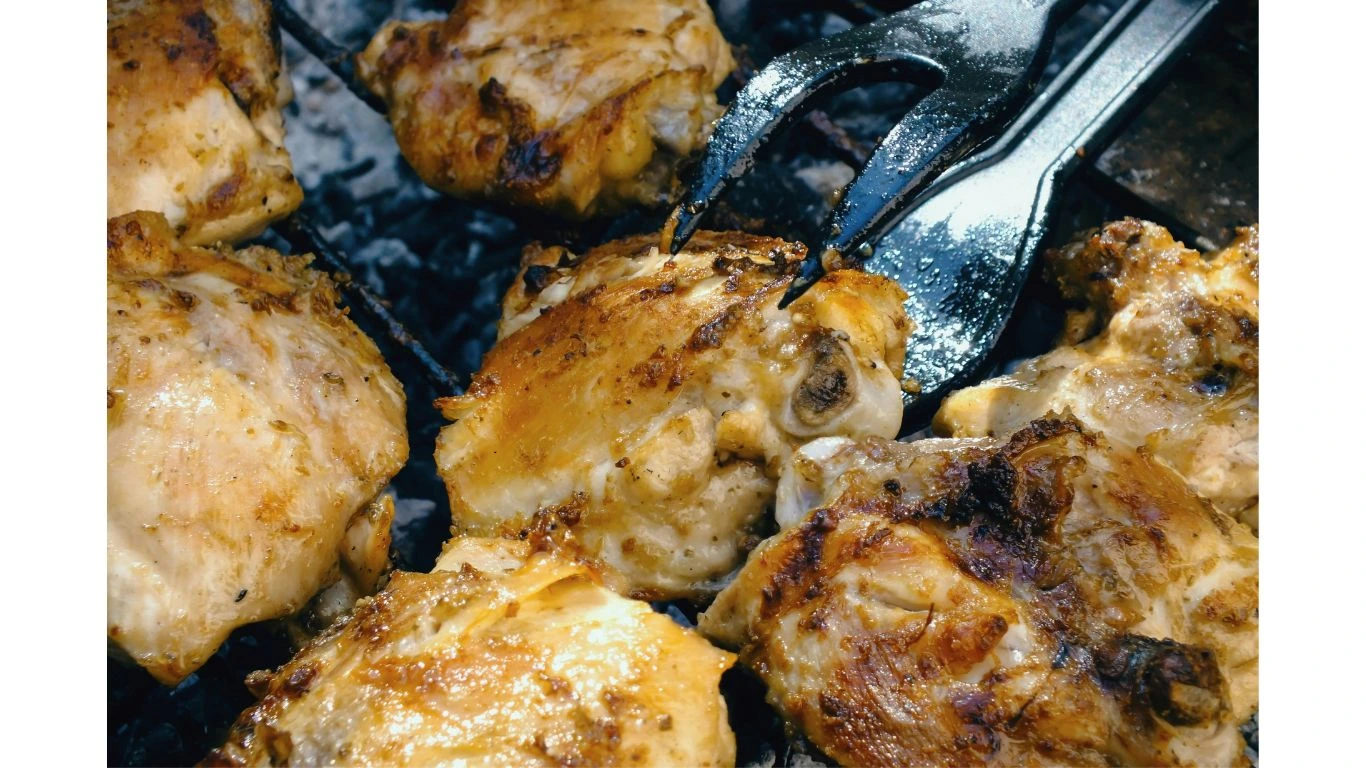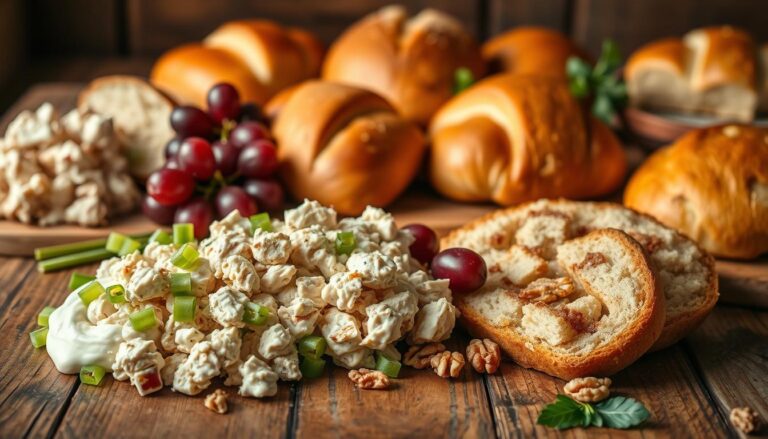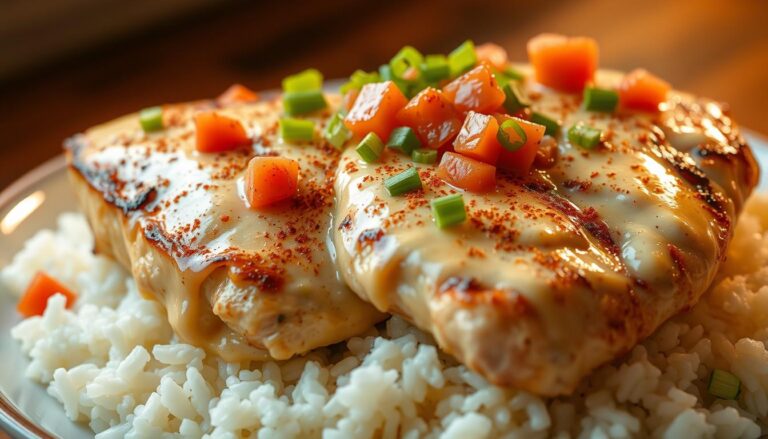Smoked Chicken Brine : Best Chicken recipe in 2025
Table of Contents
Smoked Chicken Brine
Unlocking the secret to incredibly juicy and flavorful smoked chicken starts with a perfect chicken brine. Mastering the art of smoked chicken brine turns an ordinary piece of poultry into a culinary masterpiece. It will impress every dinner guest.
A carefully prepared smoked chicken brine does more than simply enhance moisture.It penetrates the meat thoroughly, creating a rich and layered flavor. Your chicken will remain tender and succulent throughout the smoking process. Whether you’re a backyard barbecue enthusiast or a serious home cook, understanding the science and technique behind brining can elevate your cooking skills.
Key Takeaways
- Brining dramatically improves chicken’s moisture and flavor
- Salt plays a key role in helping meat absorb flavors and stay tender.
- Proper brining techniques prevent dry, bland chicken
- Different salt types impact brining effectiveness
- Smoking requires precise brining preparation
Understanding the Science Behind Chicken Brining
Brining chicken is a remarkable technique that transforms ordinary poultry into a flavorful delight. Mastering the art of brining chicken breast reveals the secret to juicier, more flavorful meat.
Salt’s Amazing Meat Transformation
Salt’s magic starts with its unique molecules. These molecules seep into the chicken, altering the behavior of its proteins. This helps the chicken retain moisture in incredible ways..
- Salt breaks down protein structures
- Creates space for water retention
- Enhances meat’s natural flavor profile
Osmosis: The Hidden Hero of Meat Preparation
Osmosis is key in chicken brine. Water molecules carry salt and seasonings deep into the meat
This guarantees the flavor is spread consistently, making every bite of chicken mouthwatering.
| Brining Factor | Impact on Chicken |
| Salt Concentration | Increases moisture retention by 20-30% |
| Brining Time | Enhances flavor penetration |
| Water Absorption | Reduces cooking dryness |
Why Brined Chicken Stays Juicier
Brining creates a moisture shield in the chicken. When you smoke or cook brined chicken, it stays tender and juicy. The salt solution helps prevent proteins from losing moisture while cooking.
“Brining serves as a protective measure, ensuring your chicken stays moist throughout the cooking process.” – Professional Chef
Essential Ingredients for Smoked Chicken Brine
Crafting the ideal smoked chicken brine starts with knowing the essential ingredients.
These ingredients transform ordinary chicken into a deliciously flavorful dish. Your chicken brine recipe begins with a few simple ingredients that enhance moisture and flavor
Salt is the main ingredient in any smoked chicken brine. Opt for kosher or sea salt for their clean flavor and ability to penetrate the meat effectively.Using the right amount of salt allows water to permeate the chicken, ensuring it stays juicy and tender.
- Water: The foundation of your brine solution.
- Salt: Use kosher or sea salt for optimal flavor absorption
- Sugar: It offsets the salt and contributes to a rich, golden-brown crust.
But there’s more to your brine than just the basics. Adding aromatic ingredients can enhance the flavor even more. Consider adding:
- Fresh herbs like rosemary and thyme
- Garlic cloves
- Peppercorns
- Citrus zest for bright undertones
Trying out different ingredients lets you make your brine recipe your own. Each one adds its own special flavor that goes deep into the meat. This makes for a meal you’ll always remember.
Comprehensive Guide to Creating the Ideal Brine Solution
Creating the perfect chicken brine is an art form.. It turns simple chicken into a delicious treat. Whether you’re hosting a backyard BBQ or preparing a special meal, perfecting these steps will improve your cooking skills.
Precise Salt-to-Water Measurements
The key to a great chicken brine is the right salt-to-water ratio. Here’s a simple guide to getting it just right:
- Add 1 cup of kosher salt for every gallon of water.
- Keep a 5-6% salt concentration for the best flavor
- Always use filtered or non-chlorinated water
Enhancing Flavor with Aromatics
Make your chicken brine amazing by adding aromatic ingredients:
| Aromatic | Flavor Profile | Recommended Quantity |
| Garlic | Robust and pungent | 4-6 crushed cloves |
| Rosemary | Herbal and earthy | 2-3 sprigs |
| Black Peppercorns | Spicy and warm | 1-2 tablespoons |
Temperature Control Techniques
Maintaining the correct temperature is essential for both safety and brine effectiveness. Ensure the brine is cooled to 40°F or less before immersing the chicken. Use an ice bath or fridge to quickly cool the brine after mixing.
Pro tip: Brine your chicken for 1-2 hours per pound, never more than 8 hours. Doing so helps avoid oversalting and results in tender, flavorful smoked chicken.
Mastering the Smoked Chicken Brine Process
Getting good at smoked chicken brine takes focus and care. It doesn’t matter whether you’re using chicken breasts or a whole chicken. Understanding the brining process can greatly improve your cooking.
Timing is key when brining chicken breasts. Different cuts need different brining times:
- Chicken breasts: 2-4 hours of brining
- Whole chickens: 8-12 hours maximum
- Smaller cuts: 1-2 hours recommended
Your brine solution should cover the meat completely. Choose a container that won’t react with food, such as glass or food-grade plastic. Refrigeration is essential during brining to prevent bacterial growth.
“The key to juicy smoked chicken lies in the brine”. – Professional Pit Masters
After brining, rinse the chicken well under cold water to get rid of extra salt. Dry the meat with clean paper towels. This makes the surface sticky, helping smoke stick better when you cook.
Expert tip: For optimal brining, always use fresh, cold water and kosher salt. Stay away from table salt, as it can make the chicken too salty.
Common Brining Mistakes to Avoid
Making the perfect chicken brine needs focus and detail. Even skilled cooks can make mistakes that ruin their fried or smoked chicken. Understanding these mistakes can enhance your brining technique, resulting in tender and flavorful chicken
Dangers of Over-Brining
Over-brining can ruin your chicken’s texture.Leaving chicken in the brine for too long can make it overly salty and mushy.. This makes it unpleasant to eat.
- Recommended brining times for chicken brine:
- Whole chicken: 8-12 hours
- Chicken pieces: 2-4 hours
- Thin cuts: 1-2 hours
Temperature Control Challenges
Maintaining the proper temperature during brining is crucial for both safety and quality. Wrong temperatures can lead to bad bacteria or prevent salt from working right.
| Temperature Range | Brining Impact |
| Below 40°F | Slow salt absorption |
| 40-140°F | Potential bacterial growth |
| Refrigerator temp (38-40°F) | Ideal brining condition |
Selecting the Right Salt
Not all salts are good for chicken brine. Kosher salt is best because of its clean taste and even crystals.
- Avoid using:
- Iodized salt (can impart metallic taste)
- Coarse sea salt (uneven dissolution)
- Flaky salts (inconsistent concentration)
Understanding these common mistakes will help you create an excellent fried chicken brine This ensures juicy, flavorful meat with every cook.
Tips for Smoking Your Brined Chicken
Smoking brined chicken needs precision and skill. The brine you made is the first step to a tasty dish. It will impress your guests and satisfy your taste buds.
Selecting the right wood chips is essential for achieving great flavor.Here are some top picks:
- Apple wood for a sweet, mild flavor
- Hickory for a classic smoky taste
- Cherry wood for a subtle fruity undertone
- Pecan for a rich, nutty essence
Keeping the smoker temperature steady is important. Aim for 225-250°F for the best results. Check the chicken’s internal temperature with a meat thermometer. It should be 165°F for safety.
If you want to try fried chicken brine, it works great too. Just pat the chicken dry before breading. This will help it get crispy on the outside while staying juicy inside.
“Patience and precision are the keys to perfect smoked chicken” – Professional Pitmasters
Here are some pro tips for smoking success:
- Let the chicken rest at room temperature for 30 minutes before smoking
- Use a water pan to keep the meat moist
- Don’t open the smoker too often to keep the temperature steady
Your smoked chicken brine turns a simple piece of meat into a masterpiece. Everyone will want to know your secret.
Conclusion
Learning to make smoked chicken brine can turn a simple meal into a special event. You’ve learned essential techniques to prepare chicken that’s both juicy and packed with flavor. This will surely impress your loved ones.
The science behind brining shows how salt and moisture improve meat’s texture and taste. This knowledge is key to making your chicken stand out.
Every great chicken brine recipe begins with mastering the basics. You’ve discovered how salt penetrates the meat and the ideal combination of ingredients. By avoiding common mistakes and keeping the right temperature, you’ll always get amazing smoked chicken.
Don’t forget, the more you practice, the better you’ll get at making smoked chicken brine. With each attempt, you’ll gain more confidence and be able to experiment with new flavors and techniques.. This will help you create a dish that’s truly yours.
Now, you have the power to make your home cooking truly special. With these skills, you can make smoked chicken that rivals what you find in restaurants. Your secret recipe will be in high demand.
For more cooking tips, stay connected with us. We also recommend the cookbook Skinnytaste Simple: Easy, Healthy Recipes with 7 Ingredients or Fewer
FAQ
How long should I brine chicken before smoking?
The brining time varies based on the chicken’s cut and size. For chicken breasts, aim for 2-4 hours. Whole chickens can brine for 8-12 hours. But, don’t brine longer than 12 hours to avoid too much saltiness. Always keep the chicken cold during brining.
Can I use kosher salt or sea salt for my chicken brine?
Kosher salt is ideal for brining due to its clean flavor and ability to dissolve easily. Sea salt works too, but avoid iodized table salt for its metallic taste. Be careful with salt amounts as different types have different sizes that affect taste.
What is the perfect salt-to-water ratio for a chicken brine?
A good brine uses 1 cup of salt per gallon of water. For a precise mix, aim for 5-6% salt concentration. This means about 50-60 grams of salt per liter of water. Adjust based on your recipe and salt type.
Can I add sugar to my chicken brine?
Yes, sugar is great in brine. It balances saltiness and helps with browning.
Brown sugar or honey enhances your chicken’s flavor, adding depth and complexity.
Do you need to rinse the chicken after brining?
Rinsing is key to remove extra salt. Pat the chicken dry with paper towels after rinsing to achieve crispy skin. This step helps avoid excessive saltiness and allows seasonings to adhere more effectively.
Can I use the same brine for different types of poultry?
While brine basics are the same, different poultry might need adjustments. Chicken usually needs less brining than turkey. For instance, a turkey may need to brine for 12-24 hours, whereas chicken breasts only require 2-4 hours. Adjust brining time based on the poultry type and cut.
What food safety precautions should be taken when brining chicken?
Always brine chicken in the refrigerator to prevent bacterial growth. Keep it below 40°F (4°C). Use a clean, non-reactive container. Never leave chicken at room temperature, and wash hands and surfaces well after handling raw chicken.
Can I brine frozen chicken?
It’s best to thaw chicken before brining. Brining frozen chicken can lead to uneven salt distribution and potential safety concerns. Thaw chicken in the refrigerator before brining to ensure even salt absorption and maintain safety..







